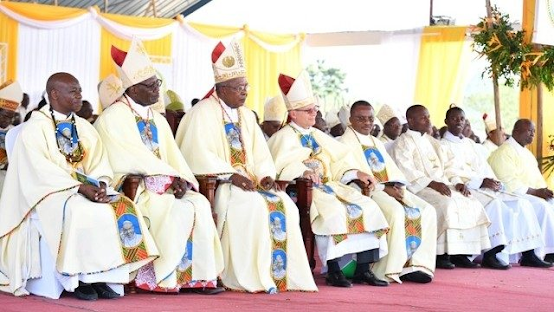Tanzania, a country celebrated for its natural wonders and cultural diversity, is also a fascinating tapestry of religious beliefs. The nation’s religious landscape reflects centuries of history, trade, and cultural exchange, fostering harmony among its people. Here’s a detailed overview of religion in Tanzania, exploring its statistical composition, cultural significance, and historical context.
1.
Statistical Overview of Religion in Tanzania
Tanzania’s population of over 65
million people practices a variety of religions, with the major faiths being:
- Christianity: Approximately 63% of the population adheres to
Christianity, making it the largest religious group. The faith includes
various denominations, such as Catholicism, Protestantism, and Evangelical
movements.
- Islam:
Around 34% of Tanzanians are Muslim, with Sunni Islam being the dominant
sect. Coastal areas, such as Zanzibar and Dar es Salaam, have a higher
concentration of Muslim communities due to historical trade connections
with the Arab world.
- Traditional African Religions: A smaller percentage of the
population continues to practice indigenous beliefs, often integrating
them with Christianity or Islam.
- Other Religions: Small communities of Hindus,
Buddhists, and followers of the Baha’i faith also exist, primarily among
expatriates and descendants of South Asian immigrants.
2.
Religious Harmony in Tanzania
Tanzania is renowned for its
religious tolerance and peaceful coexistence. Interfaith dialogues and shared
cultural practices contribute to this harmony, with communities often
celebrating each other’s religious festivals, such as:
- Eid al-Fitr and Eid al-Adha: Celebrated by Muslims and
often joined by Christian neighbors.
- Christmas and Easter: Observed by Christians with a
festive spirit that transcends religious boundaries.
3.
The Historical Context of Religion in Tanzania
Tanzania’s religious diversity is
deeply rooted in its history:
- Indigenous Beliefs: Before foreign influences,
many ethnic groups practiced animism, worshiping ancestral spirits and
nature deities.
- Islamic Influence: Beginning in the 8th century,
Arab traders introduced Islam along the Swahili Coast. Zanzibar became a
hub for Islamic learning and culture.
- Christian Missionaries: In the 19th century, European
missionaries brought Christianity, particularly during the German and
British colonial periods. Churches and mission schools played a
significant role in spreading the faith.
4.
Cultural Impact of Religion
Religion influences various aspects
of Tanzanian life, including:
- Architecture: The coastal regions are dotted with historic
mosques, such as the 12th-century Kizimkazi Mosque in Zanzibar. Inland,
you’ll find grand cathedrals and mission-built churches.
- Festivals: Religious events are integral to the cultural
calendar, with vibrant celebrations that include traditional music, dance,
and feasts.
- Education and Healthcare: Many religious institutions
run schools and hospitals, significantly contributing to Tanzania’s social
development.
5.
Zanzibar: A Unique Blend of Faiths
Zanzibar, part of the United
Republic of Tanzania, is predominantly Muslim (over 95%). The archipelago is a
testament to the blending of Arab, Persian, Indian, and African cultures,
creating a rich religious and cultural heritage.
6.
Religion in Daily Life
Faith plays a central role in the
daily lives of Tanzanians:
- Prayers:
Call to prayer (adhan) echoes from mosques, while church bells ring on
Sundays.
- Dress:
Modesty is valued, particularly in Muslim-majority areas, where women
often wear hijabs, and men don traditional kanzus.
- Customs:
Blessings are sought for significant events like weddings, births, and new
ventures.
7.
Challenges and Opportunities
While Tanzania enjoys religious
harmony, challenges such as economic disparities and political misuse of
religion occasionally arise. However, initiatives promoting interfaith
cooperation and education continue to strengthen unity.
Experience
Tanzania’s Religious and Cultural Richness
Exploring Tanzania’s religious
diversity offers travelers a deeper understanding of its history and culture.
Whether it’s visiting Zanzibar’s historic mosques, marveling at colonial-era cathedrals,
or engaging with local traditions, the spiritual heartbeat of Tanzania is
impossible to miss.
📩 Ready to discover Tanzania’s cultural treasures? Contact Northern Circuit Adventure to begin your journey today! - www.northerncircuitadventure.com - info@northerncircuitadventure.com

No comments:
Post a Comment